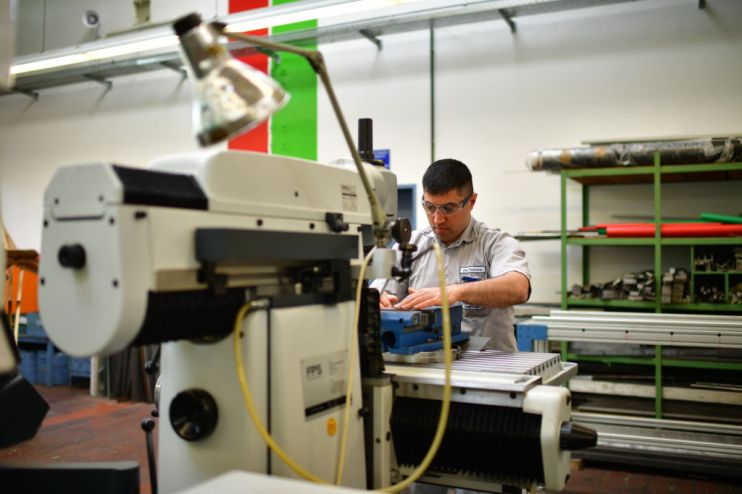German factory production slumps in June raising recession fears

German industrial production fell by much more than expected in June, raising fears that Europe’s biggest economy contracted in the second quarter.
Read more: Eurozone construction sector held back by Germany in July
Factories in Germany produced 1.5 per cent less in June than they did in May, far less than the 0.4 per cent fall economists had been expecting.
Year on year, production fell 5.2 per cent. This was over twice the size of economists’ predictions of a fall of 1.8 per cent.
The weak figures add to Germany’s economic woes and cancel out a glimmer of hope seen yesterday in better-than-expected factory orders figures for June.
Manufacturing, traditionally the driver of German growth, has been hard hit in 2019 by rising trade tensions, weaker demand from a slowing China and a global cooling of growth.
In June, the production of intermediate goods – products such as steel that will be used to make other goods – fell by two per cent month on month.
The production of capital goods – things such as vehicles and factory equipment – dropped by 1.8 per cent.
The amount of consumer goods produced also fell by 1.4 per cent. This will worry German policymakers as low unemployment and relatively strong consumer demand has cushioned the blow to the economy.
“Business surveys uniformly point to a further contraction in July, so things look set to get worse rather than better,” said Andrew Kenningham, chief Europe economist at Capital Economics, “even if the US refrains from imposing tariffs on the EU and a no-deal Brexit is avoided”.
“The breakdown shows that the fall was fairly broad-based, affecting all major sectors except for construction, where output was up marginally.”
Read more: Eurozone economy slows as German weakness continues
Naeem Aslam, chief market analyst at TF Global Markets, said: “Germany is the biggest economy of the Eurozone and the last thing investors want to see is that the economic engine of the Eurozone is coming to halt.”